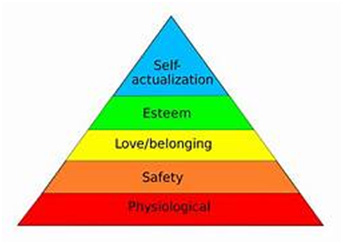In the ever-evolving landscape of education, the role of superintendents and school district leaders is both pivotal and demanding. These professionals are responsible for setting the strategic direction of educational institutions, managing vast resources, and ensuring that every student has access to high-quality education. Given the complexities and pressures associated with these roles, executive coaching has emerged as a crucial support mechanism. This article delves into why executive coaching is important for superintendents and school district leaders, exploring its benefits, the unique challenges it addresses, and how it fosters leadership development.
Understanding Executive Coaching
Executive coaching is a personalized, one-on-one professional development process that aims to enhance the leadership skills and performance of executives. This form of coaching typically involves a series of structured sessions where a coach works with a leader to identify strengths, areas for improvement, and specific goals. Through various techniques such as feedback, reflection, and strategic planning, executive coaching helps leaders achieve their full potential.
Also Read:What are the 6 Domains of MTSS?
The Unique Challenges Faced by Superintendents and School District Leaders
Before delving into the benefits of executive coaching, it is essential to understand the unique challenges faced by superintendents and school district leaders. These roles are multifaceted, requiring a balance between educational leadership, administrative acumen, and community engagement. Some of the key challenges include:
1. Complex Decision-Making
Superintendents and school district leaders are often required to make complex decisions that impact thousands of students, teachers, and staff. These decisions range from budget allocations and curriculum changes to policy implementations and crisis management.
2. Accountability and Performance Pressure
These leaders are held accountable for the academic performance and overall well-being of students within their districts. This accountability extends to various stakeholders, including parents, teachers, school boards, and government bodies.
3. Resource Management
Managing limited resources effectively is a constant challenge. Leaders must allocate budgets, human resources, and physical assets in a manner that maximizes educational outcomes while maintaining fiscal responsibility.
4. Stakeholder Communication and Engagement
Effective communication with a diverse group of stakeholders is crucial. Superintendents and school district leaders must navigate the concerns and expectations of parents, teachers, students, and the community at large.
5. Leadership Development and Succession Planning
Building and sustaining a strong leadership pipeline within the district is vital for long-term success. Leaders must focus on developing future leaders while ensuring a smooth transition when changes occur at the top.
Also Read: Empower Your Career with Executive Leadership Training at PMOC
The Role of Executive Coaching
Executive coaching offers a structured approach to help superintendents and school district leaders address these challenges effectively. Here’s how:
1. Enhanced Decision-Making Skills
Through executive coaching, leaders can develop more robust decision-making frameworks. Coaches provide tools and techniques to analyze situations comprehensively, weigh alternatives, and make informed decisions that align with the district’s strategic goals.
2. Improved Accountability and Performance Management
Coaches help leaders set realistic and measurable goals, establish accountability mechanisms, and monitor progress. This process fosters a culture of continuous improvement and ensures that leaders stay focused on achieving their performance targets.
3. Strategic Resource Management
Executive coaching equips leaders with strategies to optimize resource allocation. Coaches assist in developing budget plans, prioritizing initiatives, and identifying areas where efficiency can be improved without compromising educational quality.
4. Effective Communication and Stakeholder Engagement
Coaching enhances leaders’ communication skills, enabling them to articulate their vision clearly and engage stakeholders effectively. Coaches provide feedback on communication styles and help leaders develop strategies to build trust and foster collaboration.
5. Leadership Development and Succession Planning
Coaches support leaders in identifying and nurturing future leaders within their districts. This involves creating professional development programs, mentoring emerging leaders, and establishing succession plans to ensure continuity and stability.
Also Read: Why Social and Emotional Learning Matters: A Deep Dive
Benefits of Executive Coaching for Superintendents and School District Leaders
The benefits of executive coaching extend beyond addressing immediate challenges. It contributes to long-term professional growth and organizational success. Here are some of the key benefits:
1. Personalized Professional Development
Executive coaching is tailored to the unique needs and goals of each leader. This personalized approach ensures that the development plan is relevant and impactful, addressing specific areas where the leader can improve.
2. Increased Self-Awareness
Coaching encourages leaders to engage in self-reflection, increasing their awareness of their strengths, weaknesses, and blind spots. This heightened self-awareness is crucial for personal growth and effective leadership.
3. Enhanced Emotional Intelligence
Leaders with high emotional intelligence are better equipped to manage stress, navigate conflicts, and build positive relationships. Executive coaching helps leaders develop these skills, contributing to a healthier work environment.
4. Greater Adaptability and Resilience
The dynamic nature of the education sector requires leaders to be adaptable and resilient. Coaching helps leaders develop these qualities, enabling them to navigate changes and setbacks with confidence and poise.
5. Improved Leadership Effectiveness
Ultimately, the goal of executive coaching is to enhance leadership effectiveness. By developing key skills and competencies, leaders can inspire their teams, drive positive change, and achieve their strategic objectives.
Case Studies: Impact of Executive Coaching in Education
To illustrate the transformative impact of executive coaching, consider the following case studies from the education sector:
Case Study 1: Turning Around a Struggling District
In a struggling school district facing declining student performance and low morale, the superintendent engaged in executive coaching. The coach worked with the superintendent to develop a strategic plan focused on improving academic outcomes and fostering a positive school culture. Through targeted interventions and consistent support, the district saw significant improvements in student achievement, teacher satisfaction, and community engagement.
Case Study 2: Leading Through a Crisis
During the COVID-19 pandemic, a school district leader faced unprecedented challenges, including transitioning to remote learning and ensuring student and staff safety. Executive coaching provided critical support in crisis management, helping the leader make swift decisions, communicate effectively with stakeholders, and maintain stability. The district successfully navigated the crisis, demonstrating resilience and adaptability.
Case Study 3: Building a Leadership Pipeline
A school district recognized the need for strong leadership succession planning. With the help of an executive coach, the superintendent developed a comprehensive leadership development program. This program included mentoring, professional development workshops, and opportunities for emerging leaders to take on leadership roles. As a result, the district built a robust leadership pipeline, ensuring continuity and sustained excellence.
Also Read: How to Teach Social-Emotional Learning (SEL) in the Classroom?
Implementing Executive Coaching in School Districts
For superintendents and school district leaders considering executive coaching, the following steps can facilitate successful implementation:
1. Assessing the Need
Conduct a thorough assessment to identify the specific needs and goals of the district and its leaders. This assessment can involve feedback from stakeholders, performance reviews, and self-assessments.
2. Selecting a Qualified Coach
Choose a coach with experience in the education sector and a proven track record of success. The coach should possess the necessary credentials, skills, and a compatible coaching style.
3. Establishing Clear Goals
Set clear, measurable goals for the coaching engagement. These goals should align with the district’s strategic objectives and address the specific development needs of the leader.
4. Creating a Structured Plan
Develop a structured coaching plan that outlines the frequency of sessions, key focus areas, and expected outcomes. This plan should be flexible to accommodate evolving needs and priorities.
5. Engaging in Continuous Feedback and Evaluation
Regularly evaluate the progress of the coaching engagement through feedback and performance metrics. Continuous evaluation ensures that the coaching remains relevant and effective.
6. Fostering a Culture of Coaching
Promote a culture of coaching within the district by encouraging leaders at all levels to engage in coaching and mentoring relationships. This culture supports continuous learning and development.
Conclusion
In conclusion, executive coaching is a vital tool for superintendents and school district leaders, providing the support and guidance needed to navigate the complexities of educational leadership. By enhancing decision-making skills, improving accountability, optimizing resource management, and fostering effective communication, coaching empowers leaders to drive positive change and achieve their strategic goals. Furthermore, the personalized and reflective nature of executive coaching contributes to long-term professional growth, increased self-awareness, and improved emotional intelligence. As the education sector continues to evolve, investing in executive coaching for school district leaders is a strategic move that can lead to sustained excellence and transformative impact.
By embracing executive coaching, superintendents and school district leaders can rise to the challenges of their roles with confidence, resilience, and a clear vision for the future of education.
Also Read: What is Strategic Management in Education?








